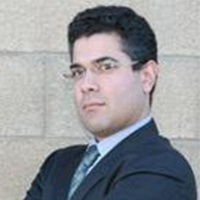Paonia Felony Lawyer, Colorado
Not enough matches for Paonia Felony lawyer.
Below are all Paonia Criminal lawyers.
Brandon U. Luna
✓ VERIFIEDCriminal, Divorce & Family Law, Estate, Traffic, Juvenile Law
At LunaLaw, LLC, we focus all of our resources on providing exceptional client service in the full range of criminal defense and family law matters. N... (more)
Peter A Rachesky
✓ VERIFIEDBankruptcy, Criminal, Divorce & Family Law, Lawsuit & Dispute, Traffic
Peter Rachesky is a practicing lawyer in the state of Colorado.
FREE CONSULTATION
CONTACTLarry Ziegler
Real Estate, Divorce & Family Law, Criminal, Business
Status: In Good Standing Licensed: 41 Years
James Edward Siegesmund
Divorce & Family Law, Criminal, Estate, Traffic
Status: In Good Standing Licensed: 19 Years
Michael Vaughn
Bankruptcy, Family Law, Estate, Real Estate, Criminal
Status: In Good Standing Licensed: 26 Years
Robert T. Zentner
Government, Criminal, Adoption, Business & Trade
Status: In Good Standing Licensed: 24 Years



